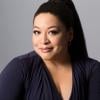
Dialogues of the Carmelites is an act of faith. First by composer Francis Poulenc, whose intense and emotionally mobile score, based on his own libretto drawn from multiple sources, illuminates the tragic true story of an order of nuns sent to the guillotine during the French Revolution. Faith is summoned from the audience as well, asked to immerse themselves in matters of Christian belief, prayer, monastic vows, theological doubt, the trials of physical pain, and both the cauterizing fear and acceptance of death.
The 1957 work, which received its American premiere from San Francisco Opera later that year, returned to the War Memorial Opera House on Saturday, Oct. 15, in a co-production of the Théâtre des Champs-Élysées in Paris and the Théâtre Royal de la Monnaie of Brussels. (Performances run through Oct. 30.) SF Opera last mounted the opera in 1982.
The new production, like the piece itself, is fearless and uncompromising. Conceived by Olivier Py, with a stark production design by Pierre-André Weltz, Dialogues plays out on a set of symbolic simplicity. Except for fleeting slivers of parched blue winter sky, the palette of the set and costumes is a study in black, white, and multiple shades of gray.

High walls signify both the confinement and presumptive protection for the Carmelite nuns. When those walls track open, forming cross-like apertures, a vision of Christ’s resurrection and transcendent hope dawns. But as a thicket of stout bare trees with stunted limbs rotates into view, the dark challenges faced by the opera’s central character, the novitiate Blanche de la Force, and her Carmelite sisters loom large.
With its orderly assemblages and processions of nuns, the action is for the most part patient and reserved. Even the famous final execution scene, set to a recurring “Salve Regina” hymn, has an eerie ritualistic calm. Here, as elsewhere, the simplicity of the staging (by revival director Daniel Izzo) heightens the drama intrinsic in the score.
There is nothing contained about Blanche, played and sung with volatile conviction by soprano Heidi Stober. After startling her father (bass-baritone Dale Travis) and brother (the splendid tenor Ben Bliss) with her decision to enter the convent, Blanche remains a study in animated ambivalence herself. In a scene with another relative newcomer to the Carmelites (soprano Deanna Breiwick as Sister Constance), the performers convey the impetuous drive of two excitable young women. It’s as if their habits are a kind of disguise, still not fully inhabited by their wearers.

Shortly thereafter, in one of the evening’s most absorbing encounters, Blanche’s brother comes to visit her at the convent, with news of their father’s imminent flight from the revolutionaries. Under Music Director Eun Sun Kim’s baton, the music surges and flows through Poulenc’s vitalizing melodies. The siblings confront each other with shifting currents of persuasion and resistance, responsibility and guilt. Stober and Bliss both act and sing with spontaneity and urgency. Blanche flees her brother one moment, then lunges across the stage to cling in tortured supplication to him.
Through its three hours, Dialogues does have its longueurs. Even with Kim’s mobilizing account of the music — with murmurous string playing set off by a sudden silence or a trumpet’s snarl — some of the ensemble scenes and two of the presiding nuns do seem long-winded at times. Michelle Bradley brings a stately if sometimes vocally occluded presence to the new prioress, Madame Lidoine. Soprano Melody Moore is a solid Mother Marie. Tenor Brenton Ryan contributes a persuasive turn as a chaplain.

Two other passages stand out. One is the agonizing death of prioress Madame de Croissy (soprano Michaela Schuster). In a dramatic scenic coup, the designers turn the bed upright, which creates the illusion that the audience is looking straight from above. In her scarred voice and agonized spasms, Schuster embodies the body’s fierce, futile struggle to survive.
In the final scene, as the Carmelites gather in a semicircle, Poulenc finishes them off one by one with the slash of the guillotine’s blade. (It’s accomplished here with a chilling offstage sonic effect.) Little by little, the sisters’ gorgeous multivoiced singing of the “Salve Regina” is pared down to just a few voices. The last to arrive, the last to go, is Blanche, her fears and uncertainty resolved and her martyrdom assured by Poulenc’s humanely spiritual work.



